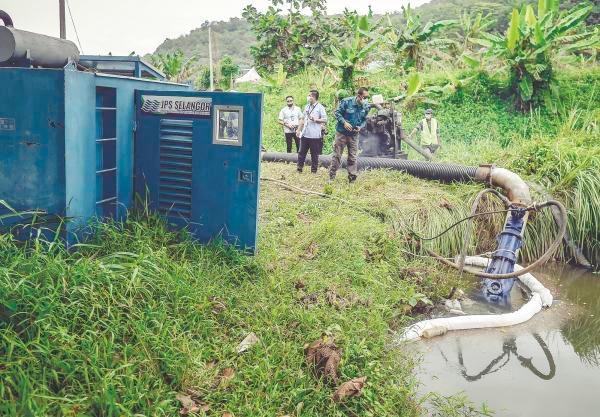THE recent call by His Royal Highness Tengku Hassanal Ibrahim Alam Shah, Tengku Mahkota Pahang, for a thorough investigation into unlicensed e-waste processing factories is timely and crucial.
This concern highlights the urgent need to address environmental crimes, which are often ignored due to their complexity, the connections of the perpetrators or the gradual, almost imperceptible harm they cause. These crimes are not just legal violations, they are direct assaults on humanity, nature and biodiversity that sustain life on Earth.
Environmental crimes are often shrouded in secrecy and involve powerful individuals or organisations. The damage they inflict is slow but deadly, eroding ecosystems, contaminating water sources and polluting the air. This incremental destruction fosters complacency as the extent of harm becomes apparent only when it is too late.
These crimes are far from victimless. They have profound consequences that affect not only nature but also humanity. For example, illegal dumping of toxic waste contaminates soil and water, leading to serious health problems in communities. Pollutants enter the food chain, affecting crops, livestock, and ultimately, human health.
The illegal exploitation of natural resources, such as timber and wildlife, depletes biodiversity, pushing species to extinction and disrupting ecosystems that have evolved over millennia.
The demand for transparency resonates in a world where too many environmental crimes go unpunished.
Perpetrators, often shielded by powerful connections, manipulate the system to escape justice. These crimes, whether involving illegal logging, poaching or hazardous waste processing, are complex and span multiple jurisdictions, making them difficult to investigate and prosecute. However, complacency is no longer an option and such illegal activities should not be tolerated.
Combatting environmental crimes requires a coordinated, multi-agency approach. While various government departments and agencies have specific regulatory powers, these are often limited.
To effectively address environmental crimes, these agencies must collaborate with the police, who have the tools and intelligence necessary to investigate a wide range of actors, including syndicates and masterminds who launder their ill-gotten gains.
A prime example of such collaboration is “Operasi Bersatu Khazanah”, a joint operation that has been successful in curbing poaching and wildlife trafficking in Malaysia.
Another is the use of the Anti-Money Laundering Act to trace the flow of money from environmental crimes, making it harder for criminals to hide their illicit gains. Internationally, agencies can work with Interpol to dismantle networks involved in wildlife crime across borders.
The call for transparent investigations into environmental crimes is a reminder that these offences are attacks on our planet’s future. To ensure justice, we must adopt a holistic approach that acknowledges the complexity of these crimes and the necessity of inter-agency collaboration. Only then can we protect our environment, preserve biodiversity and secure a sustainable future for generations to come.
WWF-Malaysia









